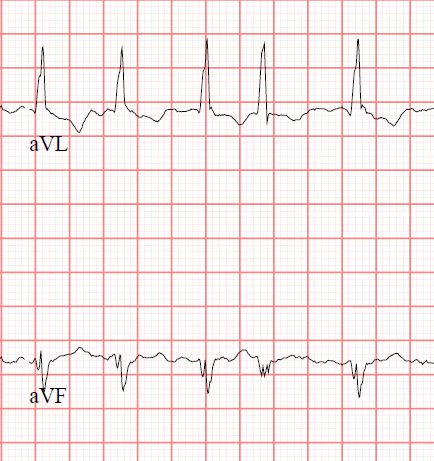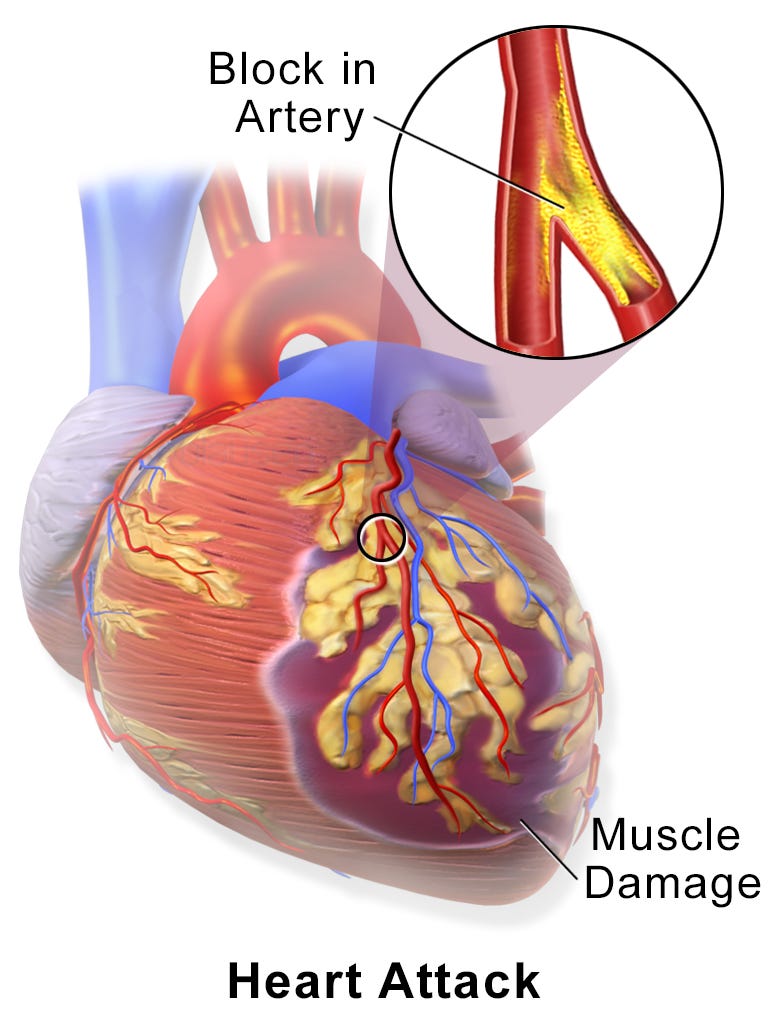Avoiding holiday heart syndrome
Last year around the holidays, I wrote about holiday heart syndrome, which refers to the increased risk of cardiac problems that we experience around the holidays.
I would add weight gain to my own personal definition of holiday heart to include both the acute and chronic cardiac issues that arise from the way that we celebrate the holidays.
Let’s do a quick refresher on what holiday heart syndrome actually means.
Think of the impact of the holiday season on the cardiovascular system in two different categories - immediate and delayed
The first category has to do with the immediate impact of the holidays on the cardiovascular system, which boil down to irregular heart beats and heart attacks.
Irregular heart beats
The most common irregular heartbeat associated with the holidays is atrial fibrillation (or Afib). Alcohol is a pretty clear trigger for atrial fibrillation.
Anyone who works in an emergency room or on a medical floor in a hospital knows that a single episode of heavy drinking can cause someone to go into atrial fibrillation.
Afib can cause symptoms of palpitations, fluttering in the chest, shortness of breath, chest pain, nausea, and a whole bunch of others. It needs to be diagnosed on an EKG, so it makes sense to get checked out if you or your loved one is having these symptoms.
Heart attacks
More people have heart attacks and die from heart attacks during the holidays than over any other time of year.
No one knows why this is, although there are a handful of ideas:
More stress, either related to being around family or feeling lonely
Increased physical activity for the inactive
More unhealthy food and alcohol
Delay in seeking medical care until after the holidays
My conclusions here are simple: heart attacks occur more frequently during the holidays and people are more likely to die from heart disease during this time of the year than any other.
That means you should be prompt in seeking out medical attention if you develop any symptoms of new chest pain, chest pressure, trouble breathing, or generally feeling unwell.
The part of holiday heart that seems more interesting to my readers: holiday related weight gain
In that newsletter from last year, the part that got the most engagement from readers was on the effects of holiday-related weight gain and what can be done to mitigate it.
The average person gains one pound over the holiday period from November to January each year:
That may not sound like much, but it adds up, especially because we don’t lose the weight between the New Year and the next holiday season - one pound a year means that by 2040, you’ll weigh 20 pounds more than you do today.
It’s kind of incredible how much is written each year about avoiding holiday weight gain, but it’s more incredible how insipid all the content is.
Most of the articles say the same things:
Eat less beforehand or even do a prolonged fast before the big meal
Be active
Eat a lot of veggies and/or limit dessert
Don’t show up hungry or plan ahead by filling up on healthy stuff first
Eat slowly - pace yourself and practice mindful eating
Don’t stress about it - because why would you be stressed after reading 20 tips on micromanaging your indulgences?
While this is all sensible advice, it doesn’t seem to have much impact, as evidenced by the way that the same articles get written year after year and our overweight and obesity statistics continue to move in the wrong direction.
Some of the smarter people talking about this stuff will add some interesting additional tips:
Keep your holiday indulgence to a single meal or a single day
Give leftovers to your guests or throw them out to remove temptation and avoid relying on willpower
Do a muscle glycogen depleting workout on the morning of the big day - a number of different variations exist, but the concept is that if you exercise intensely the morning of the holiday, you’ll fill up your muscles instead of your fat cells with the extra energy
I’m going to keep my thoughts here simple
Rather than thinking about how to prevent holiday weight gain, just enjoy your holidays:
Eat and drink what you want.
Celebrate with friends and family.
Don’t stress about avoiding leftovers.
Everything else is just noise.
When you’re thinking about the rest of the holiday season, try to avoid developing a month long case of the “what-the-hell” effect. Don’t treat your November to January like you’ve pulled the pin out of a grenade of an endless holiday buffet.
Other thoughts before we conclude this:
The evidence is piling up that getting more protein improves body composition, meaning more muscle and less fat. Think about emphasizing protein.
There’s no habit more important to your long term health than exercise. Rather than trying to time your workouts around a holiday meal, remember that exercise is a keystone habit. Decide whether you’re a person who exercises or whether you’re one who slowly let’s entropy take over and embraces a slide towards sarcopenia.
Happy Thanksgiving to all! I am thankful to you all for reading my newsletter!





